Some notes on Franchising
Most of us in the VC-backed tech echo chamber love to pretend like we know enough about small businesses to invest in tools for their operators and/or build solutions for them. But the truth is, very few of us can truly empathize and understand their needs since we're so far from operating in any mental or physical state that resembles them. So recently, I've been going down the SMB rabbit hole and more specifically, meeting with franchise experts and franchisors to explore various concepts and understand the process one goes through from initial research to launching and running their own business as a franchisee. It has been very fun to learn about businesses and sectors that I have no prior knowledge of. Figured I'd share some high level learnings below.
By the way, my tone will be a bit hand wavy and I'll often say things like, 'in theory' because I've quickly learned how this isn't a market where everyone does what they say, or where things function under the hood as one would expect based on what they're told on the surface. You must do a lot of your own due diligence when exploring concepts and franchisors as a potential franchisee – don't take anything anyone says or writes as gospel.
Franchising Basics
Franchising is a form of licensing where the owner distributes products or services through affiliated dealers. In short and in theory, franchisor’s provide operating rights to a territory, startup support, training, etc. to franchisees. Franchisees pay an initial fee for the right to a territory and an agreed upon royalty for future sales (from gross revenue). There are a lot of other agreed-upon costs baked into contracts as well. As one franchise consultant explained to me, the choice to be a franchisee is akin to buying into an HOA neighborhood – you will have to answer to others, be told what to do, and deal with a lot of frustration. There are pros and cons, and a lot comes down to your personality type and goals.
Initial franchise fees are commonly ~$50k but range from $1k to $150k. Royalties are often tiered but generally fall between 4-8% of gross revenue.
It's not easy finding recent, trustworthy data on the franchising industry or most individual concepts, even though everyone has a FDD (Franchise Disclosure Document) that the FTC requires franchisors supply at least 14 days prior to signing any contracts with franchisees. Regardless, it's fair to say franchising plays a meaningful role in our economy, is an interesting business model, and a potentially great option for certain entrepreneurs.
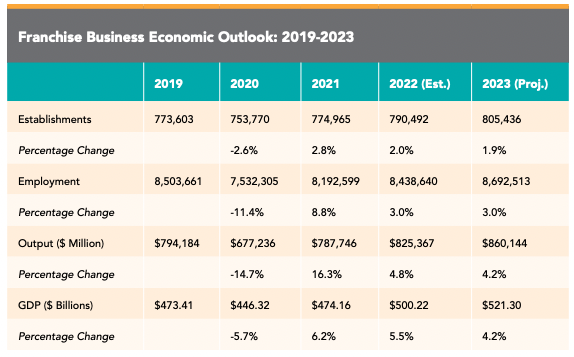
Once you’ve got your head around the basics of franchising and you’ve dissected the Franchise Disclosure Document (FDD), it’s time to dive into the nitty-gritty of making some big operational decisions. Let's break down some of the main considerations:
Franchisor vs. Franchisee
- Franchisor: If you’re on this side, you’re the one calling the shots. You’ve built a successful business model, and now you’re ready to let others in on the secret sauce — for a price, of course. Your role includes providing support, training, and guidelines to ensure consistency across the franchise network. But remember, with great power comes great responsibility. You need to be ready to invest in building a strong brand and support system.
- Franchisee: As a franchisee, you’re signing up to run a slice of an already established pie. You bring the local know-how and boots-on-the-ground effort. In return, you get a playbook of how to run the business — think of it as entrepreneurship with training wheels. But be aware, it’s not all freedom and profit; you need to follow the franchisor's guidelines closely and contribute to the brand's reputation positively.
Food vs. Non-Food
- Food Franchises: This is what many people picture when they think of franchising. Fast food, cafes, and restaurants – they’re everywhere. They can be lucrative but come with their own set of challenges such as high overhead costs, strict health and safety regulations, and intense competition.
- Non-Food Franchises: Think services, retail, or even business-to-business operations. These can offer more regular hours (no early breakfast or late-night shifts) and potentially lower overheads. But they may require a different set of skills and industry knowledge.
Services vs. Brick and Mortar
- Service Franchises: We’re talking about businesses that provide services rather than products — cleaning services, home repairs, or consulting. Often, these can be run from home or with minimal office space, reducing overheads. The focus here is on building a strong client base and delivering top-notch service.
- Brick and Mortar: These franchises have a physical presence — retail stores, restaurants, or gyms. They can attract walk-in customers, but they also come with higher start-up and operating costs. Location is key, and a thorough analysis of foot traffic, competition, and local demographics is crucial.
Funding Methods
- SBA Loans: A large portion of these loans are backed by the federal government so they often come with more favorable interest rates than commercial bank loans.
- Self-funding: Savings, retirement account assets, friends and fam, etc. Haven't dug deep, but ROBS appears to be pushed hard these days.
- Franchisor Financing: Some franchisors offer financing to franchisees.
Exit Strategy
- Sell to other franchisees: This sounds like the most common exit strategy (aside from shutting down completely). It's common to sell for some low multiple of ebitda to other franchisees looking to expand their territory.
- HoldCo: Building a business round franchises, scaling up from 1 location to 5, 10+, potentially across many concepts, with the goal of building a business of size and potentially selling stakes or the whole thing to PE.
Navigating these decisions requires a good grasp of your own strengths, weaknesses, and preferences, as well as a deep understanding of the local market and industry trends.
Franchise Disclosure Document (FDD)
This is the franchise bible. They're have 23 sections of need-to-know info about the franchisor, their obligations, your obligations, and all the financial nitty-gritty.
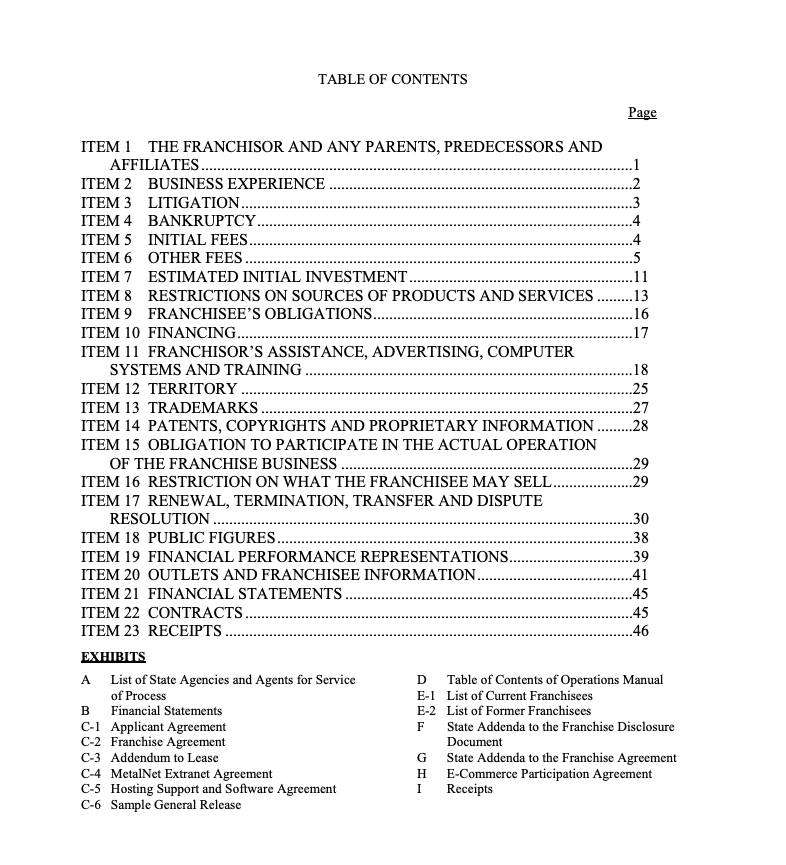
It exists because the Federal Trade Commission (FTC) want to make sure everything’s on the up-and-up. They require franchisors to hand over the FDD to potential franchisees at least 14 days before any contracts are signed. It’s like a regulatory safety net, making sure you know exactly what you’re getting into.
But here's the kicker: even with the FDD, finding recent and reliable data on the franchising industry can be like finding a needle in a haystack. You won't see the same financial data in all. For instance, most will show gross profit and some expenses across quartiles. Few will show location level data, detailed history, and net profit.
For one franchise in particular last week, I found myself painstakingly entering data from the PDF FDD into Google Sheets, and making some assumptions about margins to back into potential profitability.
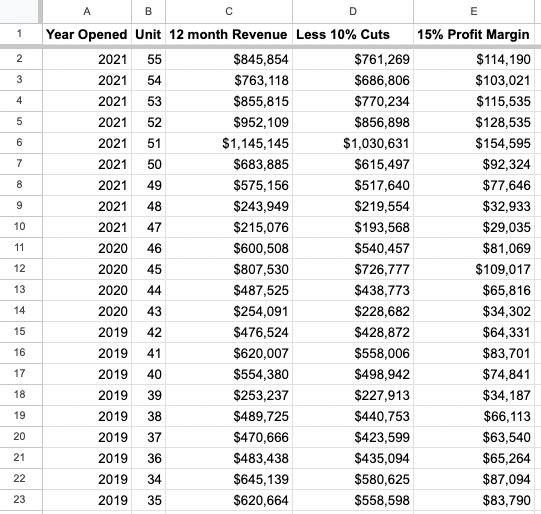
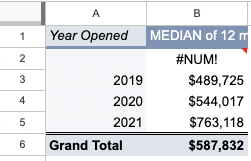
History
Supposedly franchising initially started in the US in the 1850s. For up to $5k, Isaac Singer sold licenses to establish retail stores for his invention – the sewing machine. He could grow much faster with this model than independently. Twenty years later, GM established its first independent dealer. Soon, Coca-Cola sold its first bottling franchise. Franchising developed in the United States at this time for many reasons – the size of the US created unique logistical challenges, raising capital was challenging, etc.
Fast forwarding over a century, there are more than 800k franchise establishments representing 300 lines of business with over 9m employed by locally owned franchises across the country.
Current State
The small business industry (franchising included) has a lot of similarities to the VC-backed market. The economy is the economy. Covid was a shock to small businesses everywhere causing many brands to address poorly performing business models and locations, while addressing various vulnerabilities. An influx of capital by way of government stimulus fueled unsustainable demand, and PPP helped prop businesses longer than they would have stood independently. In short, unhealthy businesses survived longer than they should have. And then interest rates rose quickly, and lenders have become more risk averse, so capital is more expensive and less plentiful. Many businesses will die and we'll see a wave of consolidation.
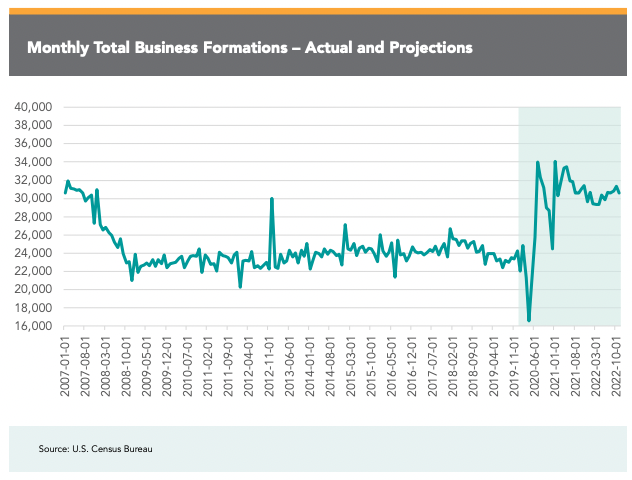
Despite its flaws, I think franchising will get a lot more attention by entrepreneurs in the future than in the past, especially over the next 3 years. The manic cyclicality of tech always drives entrepreneurial people to look elsewhere for opportunity. Franchising is interesting from both ends – as a business model and growth model for franchisors, and from the perspective of a business owner in the form of a franchisee.
Looking Ahead
As Sam Lessin astutely highlighted, this is an interesting place to hunt and create opportunities. 'Platforms for small businesses are under-invested in and under-appreciated relative to their impact to our economy. There are interesting opportunities to help create new entrepreneurs, leveraging businesses-in-a-box and franchising, offering capital light opportunities that allow entrepreneurs to own and operate a small business turning employees into owners. People don't trust their startup equity being valuable at liquidity in 10+ years. People are prioritizing self-reliance and don't want to live for a change-the-world narrative which seems randomized and out of reach.’
Every cycle burst leaves tech employees questioning if they'll ever be at one of the few, large winners, or if there's a better path to financial independence. And as Alex Johnson said, "franchising remains one of the least-heralded yet effective wealth-building tools in the world and an intriguing area for fintech innovation."
Resources
- (2023) WTF VC - Fall 2023 from Sam Lessin
- (2015) HBSP: Valerie Daniels-Carter: High Growth Entrepreneurship via Franchising
- (1996) HBSP: Assessing the Franchise Option
- (2017) HBSP: A Note on Franchising (Abridged)
- (2023) Frandata: 2023 Franchising Economic Outlook
- (2022) FSB: Top 20 SBA Funded Franchises & 20 Franchises With Highest Default Rate
- (2023) SBA: Franchise Directory
- Investopedia: FDD Overview
- IFA: What Are ROBS and How Can You Use Them To Fund Your Business?